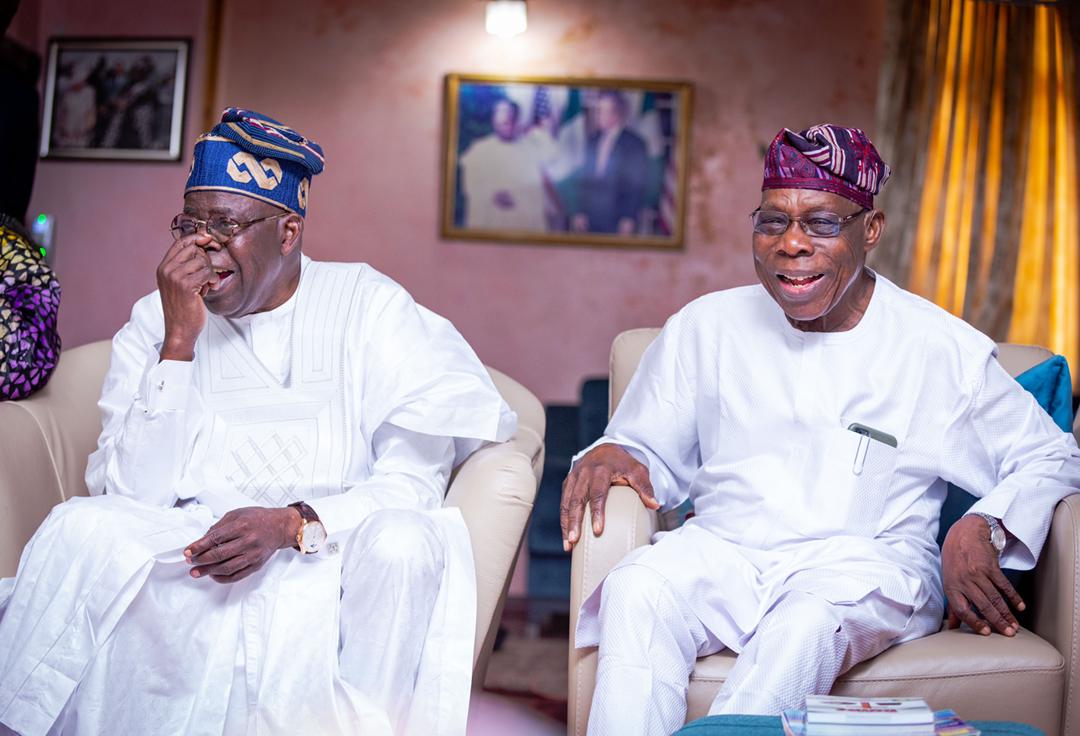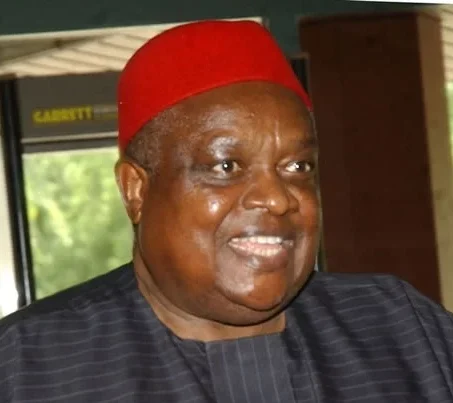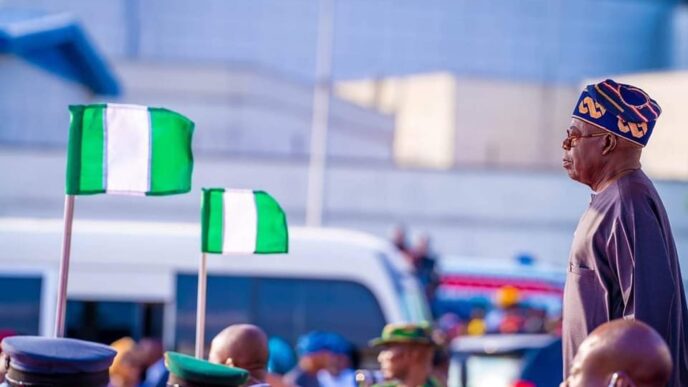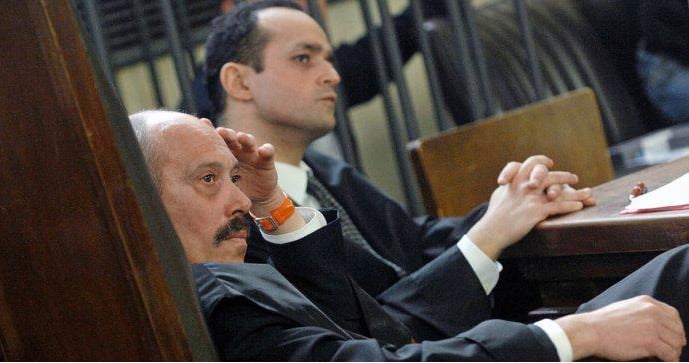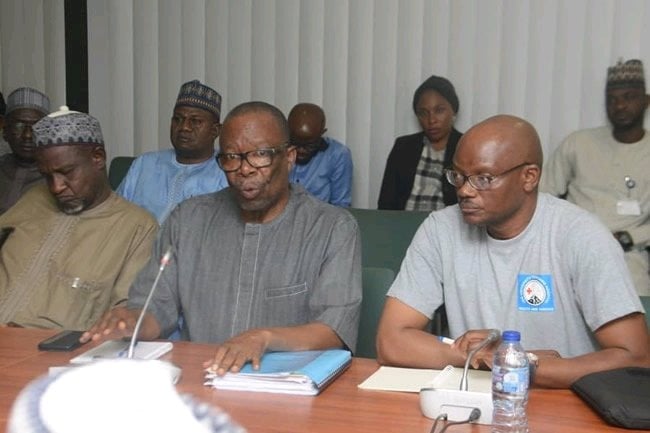Let me serve you this whiff of good news in case it had sped by unrecognised. Dr Aminu Maida, Executive Vice Chairman (EVC) of the Nigerian Communications Commission (NCC), declared in Lagos, last week, that the SIM-NIN Linkage Policy, which enjoyed a convoluted tenure, has formally been completed. With that declaration, it means every phone number in Nigeria now carries an owner’s identity as per the approval and harmonisation by the National Identity Management Commission (NIMC).
“We have recently concluded the implementation of the Federal Government’s 2020 policy of the linking of every phone number to a NIN. Though it was a bit painful for Nigerians, I think we also need to appreciate what this does for us. Today, there is no phone number that we cannot associate without a verified NIN. Not just a number but a number that has been verified,” Maina declared while speaking at the 2024 Annual Corporate Governance Conference on Thursday.
This is more like an unexpected denouement. For a project that began in December 2020 with only a two-week implementation timeline but has witnessed twists and turns and multiple timelines, the announcement presents more of an anti-climax than the real accomplishment which it is. It is in order to extend congratulations to NCC and NIMC for putting a closure to an exercise that periodically doled out trauma to Nigerians.
At the time of introduction, it was hailed as one silver bullet that could enhance national security and check fraudulent practices across platforms. Putting his imprimatur on the Revised National Identity Policy for SIM Card Registration in March 2021, President Buhari wrote: “The Subscriber Identification Module (SIM) has become a necessary component for citizens to access various services provided through telecommunications systems. This administration places a premium on the safety and security of Nigerians and linking the SIM to NIN will significantly enhance security. It is in line with this commitment that we have initiated a process that will require every SIM to be linked to the National Identity Number (NIN), which is the primary database for the country.”
Advertisement
Enjoying a little bit of gloat, Minister of Communications and Digital Economy, Dr Isa Ali Ibrahim Pantami enthused: “The policy will enable Nigeria to take giant strides towards improving national planning, overcoming security challenges and boosting our GDP. National Digital Identity will accelerate economic planning and development. It will also promote digital inclusion, digital financial services and other value-add- ed services across the nation. It will also help Nigerian security agencies to improve their effectiveness in dealing with cybercrime, particularly in the area of digital forensics, crime tracking and identification.”
Pantami would later raise the alarm that his life had come under threat because of his unflinching support for the policy implementation, vowing that nothing would ever deter him. The only problem however, is that the policy was introduced during the COVID-19 period which compelled isolationism and remote office engagements instead of crowd activities which the policy encouraged. Besides, the planning was deficit, and execution even more haphazard as it became very obvious that NIMC was given a task it was ill-equipped to handle. There was outrage.
Ever since, the process has never known less drama; more outrage, deadlines and curses from a people who felt done-in by a policy that was harassing as well as attenuating their humanity.
Advertisement
A convoluted journey ends here. Giving September 14, 2024 deadline in August this year, after what seemed an unexpected reaction to MTN mass disconnection of subscribers without proper NINs earlier in the month, Reuben Muoka, Public Affairs Director at the Nigeria Communications Commission, said 153m SIMs have been linked to their NINs, which is about 96 percent of subscribed mobile lines in the country.
By March this year, there were 219m subscribers on the GSM network. Even without contemplating the mathematical correctness of the Commission’s statement, an industry source had confided that the window was enough breather to achieve expected results. Now all is well that ends well?
A convoluted journey ends here. Maina doesn’t lack the capacity to give that information. Thankfully, the magic will begin to happen now. Banditry will be a thing of the past. Bus loads of humans will no longer be spirited into the bushes while ransoms are being negotiated. Yahoo Yahoo criminality has been dealt a final blow because their major implements of trade – phones – will now advertise their wicked faces. No scam calls. In fact, no more over voting in our elections because there are fingerprints that can be matched with faces and numbers only if we are sincere enough to do the right things, without waiting for God to execute every small project on behalf of the nation.
My only fear however, is that we are not close to the spot of el dorado, a land of bliss where everything will work perfectly; I mean, sans hunger. The nation doesn’t lack the right laws or capacity to execute projects, although oftentimes, those projects are doctored into failure. For instance, a new Electoral Act came into effect in 2022. The Act sanctions E-Voting/Transmission of results. Since then, election results manipulation has become much easier, intercepted and transmuted into packaged outcomes. Voila, the deed is done! You don’t need to look too far back to know that the nation has only reaped hurricane out of a beautiful law. Near complete distrust and disharmony amongst a people that was once peace-loving.
Advertisement
It is my submission here that the nation must try to manage the outcomes of the completion of this policy and that, never again, should we hear anything about a line not properly registered in Nigeria, whether old or new.
Let me observe here that there were two major policies which the previous administration wanted to use to demonstrate seriousness with governance. The first is the Digital Switchover (DSO) which was inherited from the Goodluck Jonathan administration, and the National Identity Policy for SIM Card Registration. The latter has now been implemented. So what happens next?
It is one down, one more to go. This is not my best of expressions, to achieve half instead of aspiring towards a perfect score. Oh, just like half a loaf is better than none, so why don’t you get the full loaf? Our propensity to make do with little instead of aspiring to perfection or the best is responsible for most of the failures we foist upon ourselves.
Look at it this way. The DSO launch in 2016 promised beauty and life abundance for Nigerians. At the completion of the project, broadcasters would broadcast only digital signals, vacate their broadcast bands and yield up the frequencies for sale to telecom operators, and enable the government make more money. TV viewers will enjoy digital feeds. The broadcast and entertainment industries will provide vast opportunities for content makers to harvest with their talents. There will be more employment opportunities for Nigerian youths who have demonstrated capacity as some of the best creatives and content makers in the world. The DSO promised a whole new world out there.
Advertisement
Unfortunately, as I write, the DSO fortunes are not flourishing. Although the government released N10bn for the project recently, there are litigations following some earlier decisions. At the moment, there is a hiatus. Although DSO has been launched in just a few states, making it possible for TV viewers to receive free digital TV signals in their homes, the signals have since stopped as SES, the European satellite service provider for the dual illumination stage of the project, has unplugged the Nigerian signal carriers as a result of debt owed by the Nigerian government. This also means the Set Top Boxes already in some homes have ceased to function even as there is now no further uptake from the manufacturers and marketers.
Trying to explain the cocktail of relationships in the DSO value chain will present a welter of challenges. But this I say. The project is implementable, and the benefits are really too attractive to ignore. What is needed is a genuine interrogation of each stakeholder’s role, followed with deserved respect, recognition and concerns for their engagement in the process. SIM-NIN policy was more loud and chaotic and very challenging. With the policy executed, attention should shift to the DSO to enable the nation reap the multifarious benefits derivable from a successful implementation.
Advertisement
Views expressed by contributors are strictly personal and not of TheCable.
Add a comment


